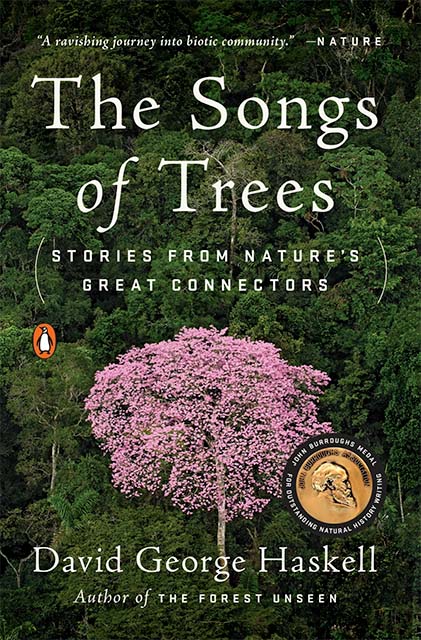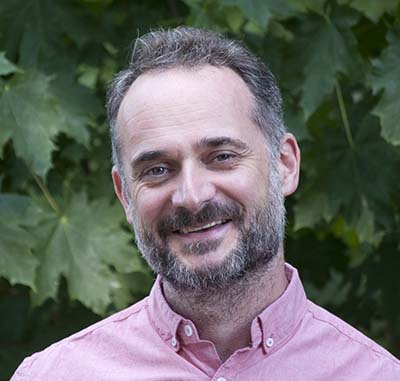
David Haskell has won acclaim for eloquent writing and deep engagement with the natural world. In this talk he will describe how he has integrated contemplative, literary, and scientific studies of the natural world. What might be learned by paying repeated attention to very small parts of our neighborhoods or forests? David has explored this question by returning again and again to the same square meter of old growth forest in Tennessee, then repeatedly visiting individual trees in various locations around the world. These explorations reveal the biological connections that sustain all life, in places as diverse as cities (Manhattan, Denver, Jerusalem), forests (in the Amazon, Rockies, and boreal) and areas on the front lines of environmental change (eroding coastlines, burned mountainsides, and war zones). In each place attention to the sensory richness of place has yielded insight into both ecology and ethics.

David Haskell’s work integrates scientific, literary, and contemplative studies of the natural world. His first book, The Forest Unseen, was finalist for the 2013 Pulitzer Prize in nonfiction and received numerous honors including the National Academies’ Best Book Award for 2013. His second book, The Songs of Trees, examines biological networks through the lives of a dozen trees around the world. The book was winner of the 2018 John Burroughs Medal and the 2020 Iris Book Award. Haskell received his B.A. from the University of Oxford and Ph.D. from Cornell University. He is Professor of Biology and Environmental Studies at the University of the South in Sewanee, TN, and is a Fellow of the John Simon Guggenheim Memorial Foundation. He serves on the boards and advisory committees of local and national land conservation groups.

